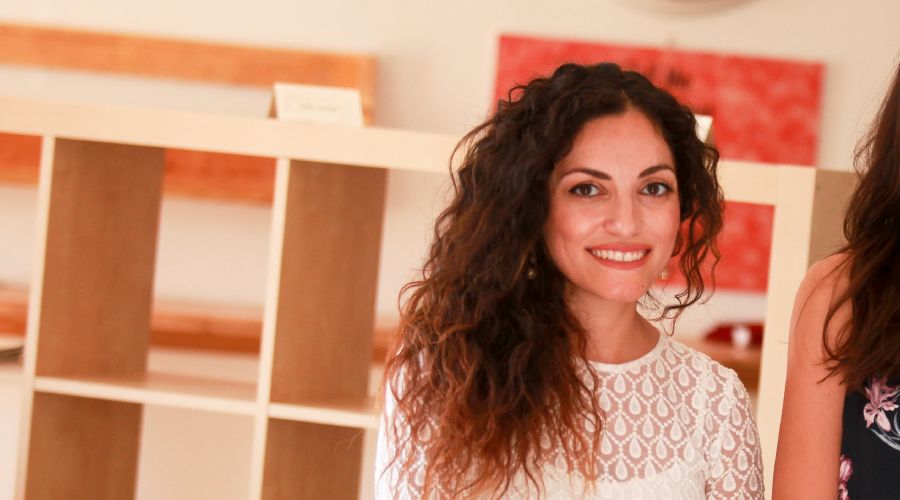In conversation with Christina Ganim of Kenz

Christina Ganim founded Kenz with her colleague and friend Nicola Cuoco. The e-commerce website, founded in Palestine, sells underwear to women primarily in Saudi Arabia. The company recently won a place on the Misk 500 Mena Accelerator programme.
We spoke to Ganim, about her entrepreneurial journey and the opportunities for the youth in Palestine.
Why did you become an entrepreneur?
I’ve always tried to do different things. I studied political studies and international law and I thought I would work at the United Nations but I obviously did not do that. I started learning more about entrepreneurship in Palestine. I had a couple of friends who had startups and I liked the community aspect. I started getting interested in apps and on a whim decided to take an online course on the business side of app development. I developed three app games and saw the whole process from start to finish. I liked the challenge, the work and experience and I wanted to learn more and explore it more.
How did the idea for Kenz come about?
We started Kenz with the idea of a space online for women. We drew from our own experiences. We don’t have such a great story about why we came up with lingerie, we wanted to do an online store and thought about products we liked and were interested in. When we were thinking of an idea, we saw that women had to go abroad to buy bras because they could never find what they were looking for. So we thought let’s start with lingerie since it is focused and specific and it is one product that you need.
What was the biggest difficulty you faced in starting your business?
We did not have any business experience and we learned along the way, it was very difficult. I didn’t know how to create an income statement and balance sheet. I had never hired people before. It was an extreme challenge. We are so lucky that we have five people, four women and a man who have been with us since the beginning. Also, working with men can be challenging especially when a woman is their boss, we always had problems with this. Our [male] software developer joined a year ago. It took us so long to find a really good tech person who understood what we were doing.
What is the biggest sacrifice you have made?
Given my background and everything I have studied, I could have a job that pays me much higher. For several months I have not had a salary but thankfully, I have the support of my family. At one point, we thought we wouldn't continue because we didn't have funding or enough sales and considered shutting down, but we thought no, this is something that could easily grow and scale.
What is like being a startup in Palestine?
The biggest challenge is access to funds and talent. When it was just my co-founder and I, we were literally doing everything. We put the money we had saved ourselves into the business but that didn’t last long. We got funding from Ibtikar in June 2017 and they invested $150,000. Ibtikar really took a chance on us that is how we were able to grow the team.
In general, with entrepreneurship in Palestine, we transcend geo-politics and borders, as long as you have an internet connection you can work from anywhere. Entrepreneurship could be an answer to some of the challenges we face in Palestine – economic development, creating jobs, creating opportunities, there are so many talented young people who are educated yet they can’t find a decent job. Entrepreneurship could be the best answer for not relying on aid and foreign entities and instead having the talent start and bred from within the country and creating our own destiny.
What will your industry look like in the next decade?
It is giving me hope that the market growth achieved by Namshi and other players highlights the prospect for fashion e-commerce in the region and that it is possible to create influence for the next entrepreneurs to come and success within this industry. We are witnessing the transformation of retail in the region and I am certain over the next 10 years we will continue to see further acquisitions, growth among competitors, and of course a shift in the mindset among Middle Eastern shoppers, creating more avid, confident and trusting online shoppers in the region.


